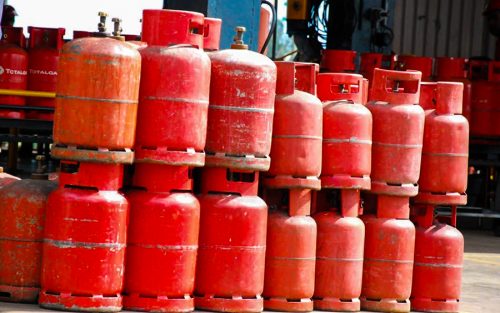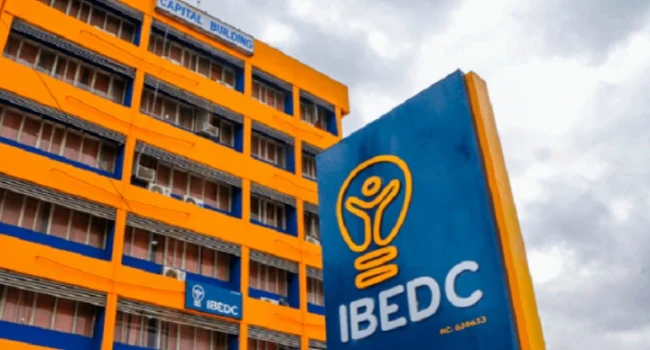The price of 12.5kg of Liquefied Petroleum Gas, popularly called cooking gas, which was sold for N7,000 about a week ago, has increased to between N8,000 and N8,200, amidst various concerns by marketers and producers of the commodity.
Of the 1.2 million metric tonnes of the product required by Nigeria, the Nigerian LNG Limited supplies about 450,000MT. This leaves a gap of 750,000MT to be filled by imports.
The Petroleum Products Pricing Regulatory Agency had said in September that out of the 85,264.80MT of LPG consumed in the country in August, 38,040.46MT were imported.
This means that 55.39 percent of the LPG consumed in the country in August was imported, while 44.61 percent was supplied locally.
The PPPRA data showed that 21,606.30MT was imported from the United States, while 13,044.266 was imported from Algeria and 12,573.779MT was brought into the country from Equatorial Guinea.
With a good measure of the product imported, its landing cost changes with the crisis in the foreign exchange market that has characterized the Nigerian economy in recent times.
Marketers of cooking gas on Thursday faulted claims by producers that one of the factors causing the persistent rise in LPG price was the lack of enough infrastructure by retailers of the commodity.
In September, it was reported that the management of NLNG claimed that marketers lacked enough infrastructure to take up its cooking gas supply.
The gas firm disclosed this while reacting to an earlier remark by the Independent Petroleum Marketers Association of Nigeria that the major cause of the rising cost of cooking gas was the lack of adequate supply.
Responding to IPMAN, the Marketing Manager, NLNG, Austin Ogbogbo, had said, “NLNG has grown its capacity from 50,000 metric tonnes per annum to 450,000 metric tonnes per annum of LPG in the past 14 years.
“Nigeria needs 1.2 million metric tonnes per annum, but even the 450,000 we produce cannot be absorbed by the market’s current infrastructure.”
When asked on Thursday if the NLNG’s position was true, the National Chairman, Liquefied Petroleum Gas Retailers Association of Nigeria, Michael Umudu, replied in the negative.
He said, “Marketers have the capacity to absorb the 1.2 million metric tonnes annually and this figure will continue to increase.
“Marketers have the capacity; rather, the challenges of the NLNG have to do with logistics. Many depots use to be empty for months; so, why should they say marketers don’t have capacity?”
According to Umudu, the storage of cooking gas does not end in the midstream facilities, with inland facilities such as gas plants and retail outlets having more storage capacities.
He said, “This is how it works: LPG is discharged in a depot, and LPG trucks are ready to load products to plants. From the plants, retailers refill their cylinders and store in their shops while end-users buy.
“This means that a depot of 5,000MT storage capacity can do a turnover of 15,000MT a month or even more. So, looking at the estimated 1.2 million MT yearly demand, it shows that if NLNG supplies only 100,000MT a month, then the 1.2 million MT target is met.”
He added, “Therefore if the depot of 5,000MT storage capacity can do 15,000MT a month, then calculating other depots with even much more capacities and multiplying by three for a month turnover, you will realise that these depots would do up to 150,000MT monthly.
“And going by the 1.2 million MT annual consumption demand, we only consume about 100,000MT a month. So why should NLNG say there is no enough storage?”
The gas retailers’ chairman noted that the NLNG or any other supplier did not need to supply the annual need at once, adding that this was why he called for the improvement of logistics by the LPG producer.
“With respect to logistics, if they (NLNG) can adapt to compatible vessels and engage enough of the vessels, then more than 1.2 million MT annual estimate would be conveniently met,” Umudu added.
Reacting to the position of the marketers, the spokesperson of the NLNG, Eyono Fatayi-Williams, told our correspondent that the gas firm could only give 450,000MT at the moment to the domestic market.
She also observed that there were challenges with logistics, such as the delay of vessels at the Lagos port, but stressed that the NLNG was doing its best to deliver its part in the supply of cooking gas.
She explained that in 2007, Nigeria could only produce 50,000MT of LPG and that the NLNG was asked to intervene, stressing that the gas firm was primarily set up for export.
“Between 2007 and now, because we have guaranteed supply, the market has grown. Today, Nigeria can take over one million tonnes of cooking gas,” Fatayi-William said.
She added, “The maximum production we have of cooking gas is 450,000 metric tonnes annually and the market did over a million metric tonnes last year.
“Also, when we talk about logistics, the maximum amount we can now give, which is the maximum production volume, is less than what the entire country needs. We are not the only producer of LPG but we can only give 450,000MT.”
The Executive Secretary/Chief Executive Officer, Nigerian Association of Liquefied Petroleum Gas Marketers, Mr Bassey Essien, lamented in a recent interview that other LPG producers were only exporting the product to other countries.

 BIG STORY1 day ago
BIG STORY1 day ago
 BIG STORY3 days ago
BIG STORY3 days ago
 BIG STORY2 days ago
BIG STORY2 days ago
 BIG STORY15 hours ago
BIG STORY15 hours ago
 BIG STORY1 day ago
BIG STORY1 day ago
 BIG STORY3 days ago
BIG STORY3 days ago
 BIG STORY1 day ago
BIG STORY1 day ago
 BIG STORY3 days ago
BIG STORY3 days ago
























